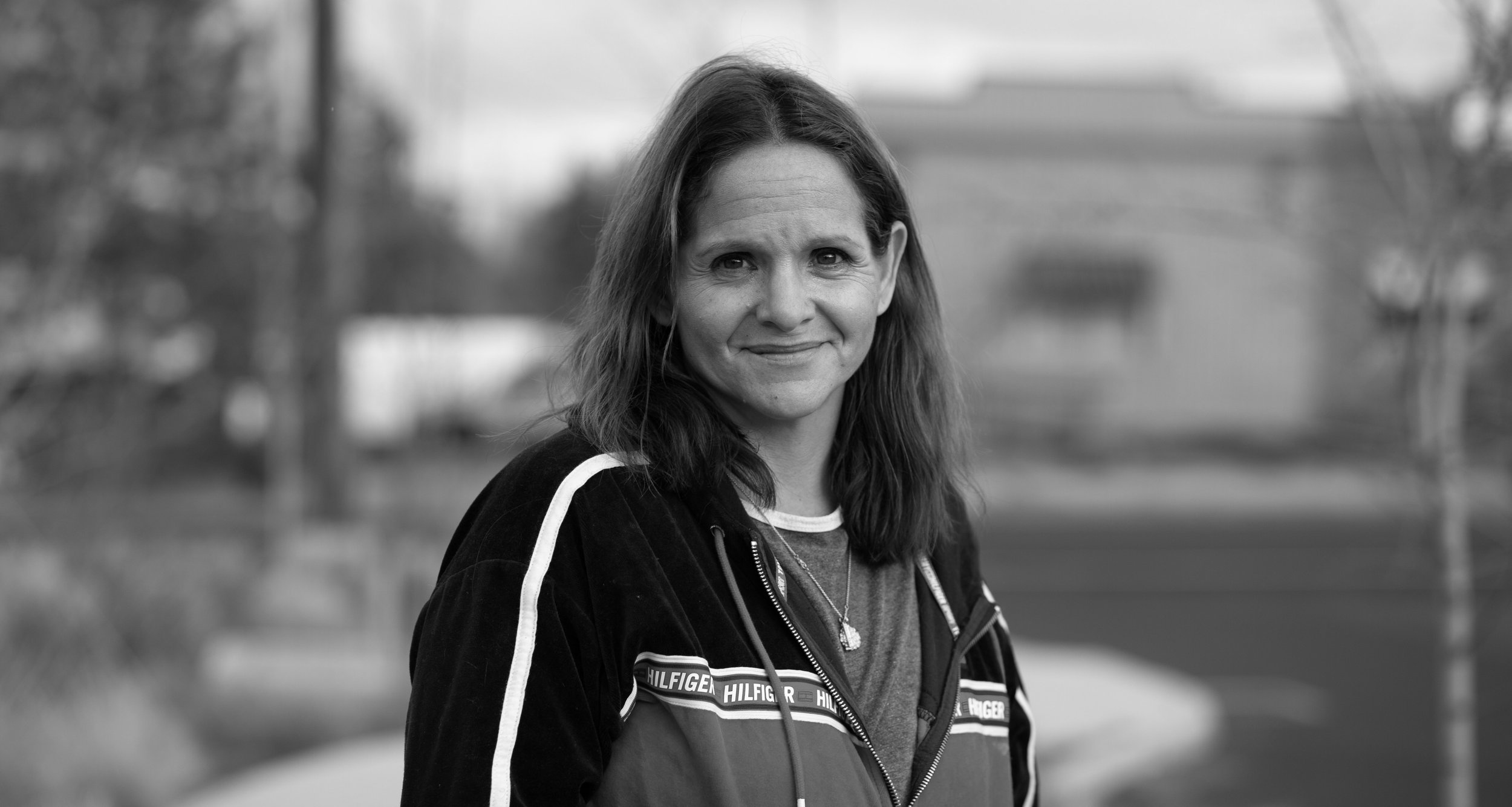
Rejena’s Story
“I’ve been stripped of my humanity.”
“I’ve only been houseless for a little while,” Rejena shares. She and her two teenage daughters used to have a home, living with Rejena’s mother-in-law. “I was struggling with addiction,” she recalls. “I had been sober for over ten years, but I started using again when Central Protective Services came into my life in 2018 and tried to take my girls away.” Having had a stable job every day she was clean, Rejena was doing what many of us do; try to provide for those they love and put their needs first. But trying to navigate the stress and worry of potentially losing her daughters became burdensome, and her mother-in-law got tired of it. In May of 2019, she kicked Rejena and her girls out.
Her daughters have now spent the last couple of years in houselessness with her. “This life is not the life I wanted for my girls,” she says. Rejena speaks candidly about her history of drug use and the need for more drug treatment programs. Her candor and passion do not come from a place of personal experience, but a long-term plan to go back to school and become a Substance Abuse Counselor. She sees the way that dealers target those living in houselessness–feeding off the despair they see–and she ultimately wants to do whatever she can to help people see that recovery is still possible for them.
Rejena is motivated to do right with her two daughters. But “doing right” is difficult because of the negative stereotypes she encounters. “I’m not lazy. I want to work,” she says with audible frustration. She worked for a fast-food chain for years and often felt the pressure of keeping her lack of housing a secret from her co-workers. “Getting a job is easy,” she says “but keeping it is another story.” When one’s employment depends on maintaining standards of hygiene or having a physical address, these once simple aspects of daily life become obstacles to overcome. She expresses her gratitude for the generosity of ministries like the Community Shower Truck, which provide weekly access to hygiene care and are at least doing what they can to bridge the gap. The lack of a physical address also continues to plague her, even in a job market where everyone is hiring. “I know I need a stable job to get housing. I’m trying to get work. But employers look at my application, see the blank spot where my address should be and don’t call.”
“If I let myself believe what other people believe about me, there would be no reason for living.”
“I feel like I’ve been thrown out and stripped of my humanity,” she says. What has surprised her the most is the degree of public hostility she’s encountered. She’s experienced several terrifying incidents where people have driven down at dangerous speeds and screamed expletives about houseless people from their car windows. “I’ve seen people throw garbage out their car windows as they drive through our camp,” she says, shaking her head in disbelief.
Despite everything she’s experienced, Rejena remains optimistic. “I’m hopeful because I have no choice but to be hopeful. If I let myself believe what other people believe about me, there would be no reason for living.”